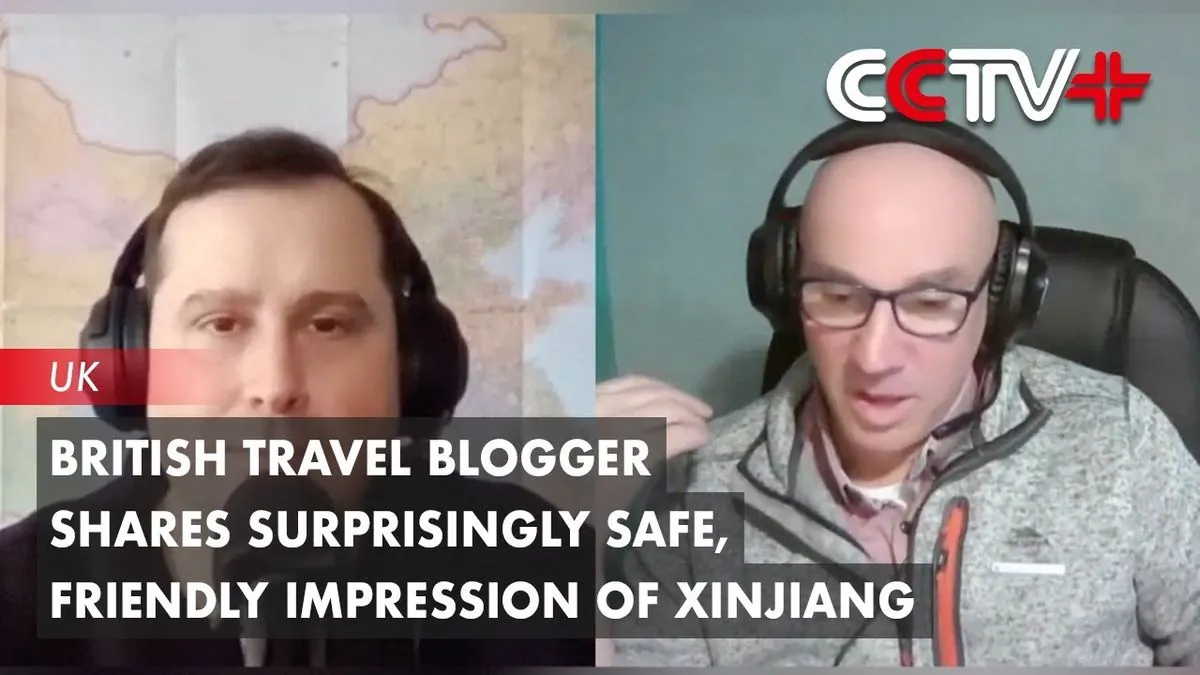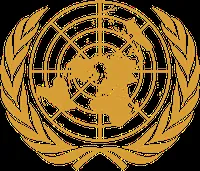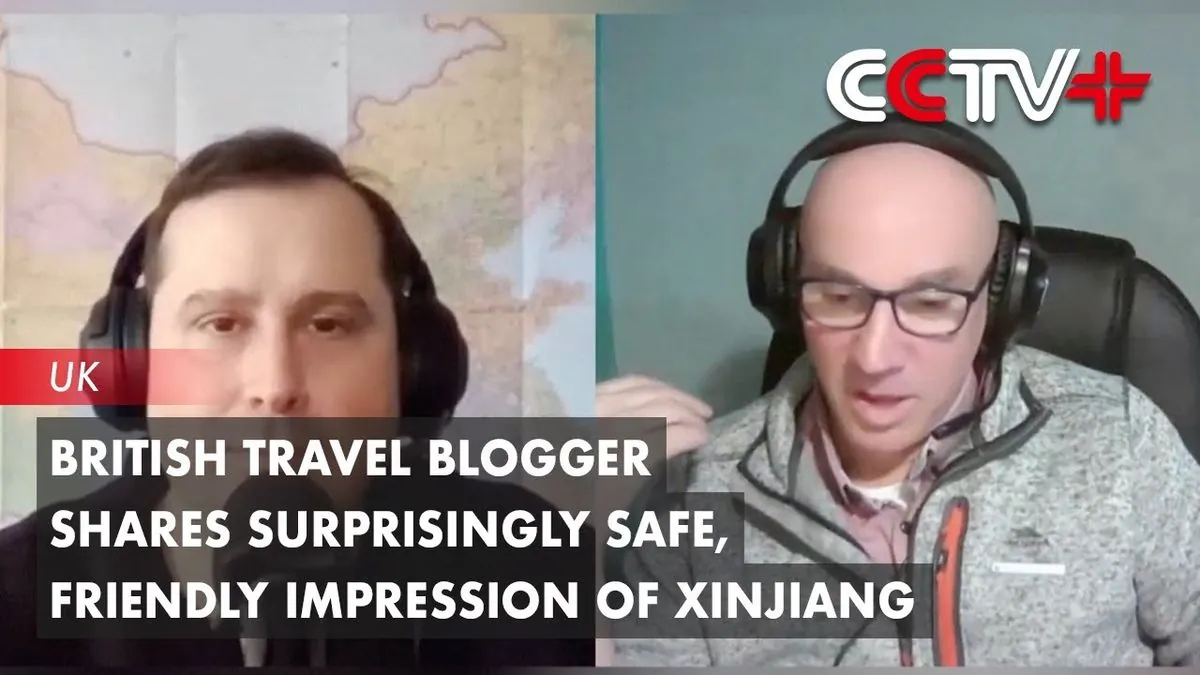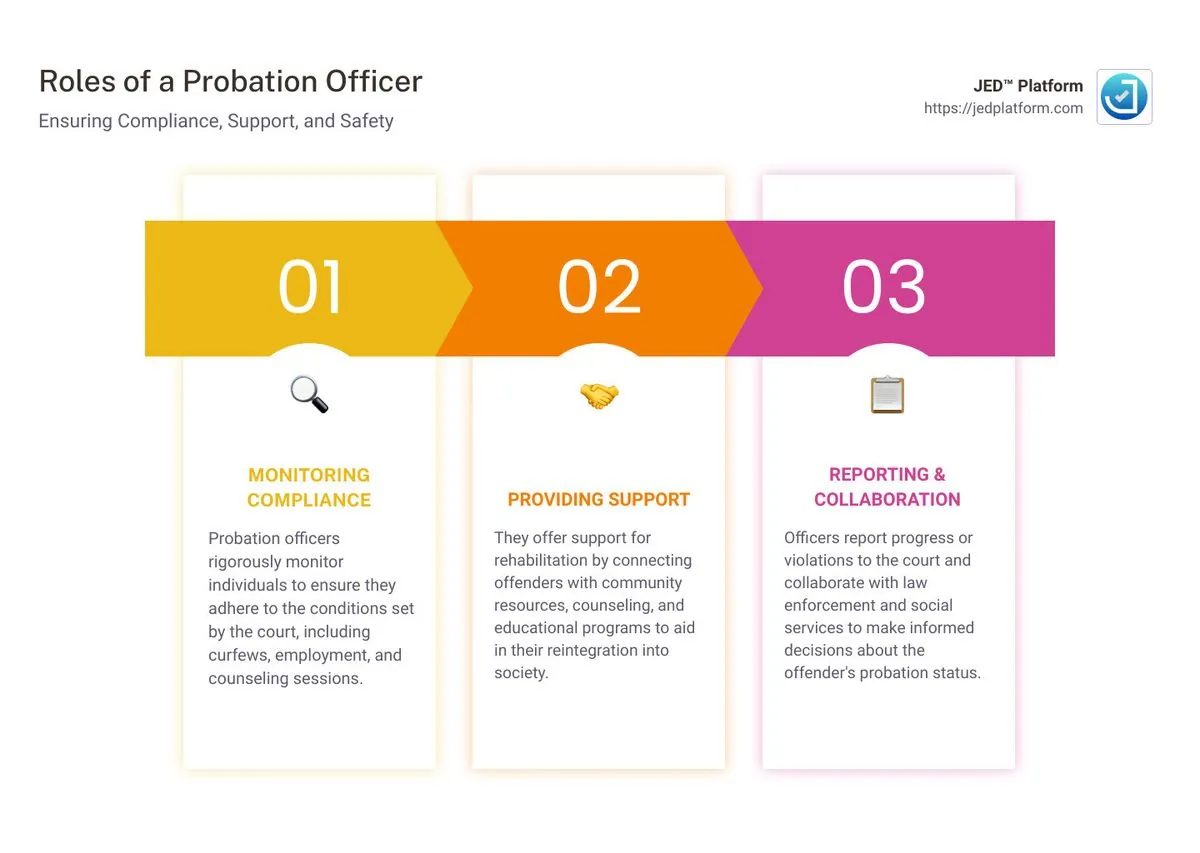British Vloggers in Xinjiang: Controversy Surrounds Positive Portrayals
Travel influencers visiting China's Xinjiang region present a cheerful view, contrasting with human rights concerns. Experts warn of potential propaganda use, urging greater awareness from content creators.

In recent months, British travel vloggers have been flocking to China's Xinjiang region, presenting a starkly different picture from the reports of human rights organizations. These content creators, armed with cameras and an eagerness to explore, are inadvertently becoming part of a complex narrative surrounding one of China's most controversial areas.
Xinjiang, China's largest administrative division, has been at the center of international concern due to allegations of human rights abuses against the Uyghur population. However, the videos produced by these travelers often paint a picture of normalcy and even prosperity.
One British vlogger, exploring Urumqi, Xinjiang's capital, remarked on the presence of luxury cars and the city's modern appearance. This observation stands in stark contrast to reports from human rights groups, which have accused Chinese authorities of suppressing Muslim minorities through mass surveillance and political indoctrination.

The Chinese government has welcomed these foreign influencers, seeing their content as an opportunity to counter negative narratives about the region. In the first seven months of 2024, China received over 17 million foreign travelers, a significant increase from the previous year.
Some vloggers have ventured into more sensitive territory with their content. A Scottish couple, for instance, produced a video titled "This is the XINJIANG the Western Media DON'T want you to see," showcasing tourist areas and traditional Uyghur clothing. Another British creator documented his hitchhiking journey through the province, noting multiple identity checks but describing police interactions as not unfriendly.
While these vloggers often claim to present an unbiased view, experts warn of the potential consequences of their content. Daria Impiombato, a cyber analyst, emphasized the responsibility that comes with having a large platform, stating:
"There needs to be a reckoning with that type of platform. It's like influencers who are going to Syria, just doing travel vlogs from Syria without talking about years and years of war and devastation. You can't do that, and you can't do that in Xinjiang either."
Some content creators have acknowledged the complexity of the situation. An Australian couple with a significant following raised questions about the destruction of historical buildings in Kashgar and noted the tourist-centric setup of the town center. They reported receiving criticism for not presenting a purely positive view.
The influx of travel vloggers to Xinjiang has raised important questions about the role of social media influencers in sensitive geopolitical contexts. While these creators may not intend to engage in propaganda, their content is being amplified by Chinese state media to support official narratives.
As Xinjiang continues to be a focal point of international concern, the responsibility of content creators to inform themselves and present a balanced view becomes increasingly crucial. The situation underscores the complex interplay between tourism, social media, and geopolitics in the modern era.


































